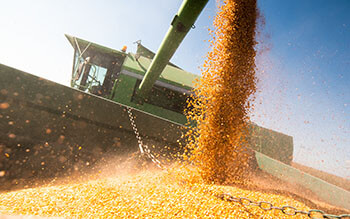USMCA a huge win for U.S. agriculture
Jul 06, 2020

The United States-Mexico-Canada Agreement (USMCA) entered into force July 1, 2020, replacing the decades-old NAFTA.
U.S. Secretary of Agriculture Sonny Perdue penned an oped in the North Carolina Fayetteville Observer where he said, “USMCA creates more market access for farmers from across our nation to sell their wholesome and nutritious products to our closest neighbors. This is a better deal for America that will grow our economy and put more money in the pockets of American families.”
USMCA was signed into law by President Donald J. Trump on January 29, 2020, after it received overwhelming bipartisan support in Congress. USMCA advances U.S. agricultural interests in two of the most important markets for American farmers, ranchers, and agribusinesses. This high-standard agreement builds upon our existing markets to expand U.S. food and agricultural exports and supports food processing and rural jobs. Canada and Mexico are our first and second largest export markets for United States food and agricultural products, totaling more than $39.7 billion food and agricultural exports in 2018. These exports support more than 325,000 American jobs.
Key Provisions of the agreement include:
·Increasing Dairy Market Access — America’s dairy farmers will have expanded market opportunities in Canada for a wide variety of dairy products. Canada agreed to eliminate the unfair Class 6 and 7 milk pricing programs that allowed their farmers to undersell U.S. producers.
·Biotechnology — For the first time, the agreement specifically addresses agricultural biotechnology – including new technologies such as gene editing – to support innovation and reduce trade-distorting policies.
·Geographical Indications — The agreement institutes a more rigorous process for establishing geographical indicators and lays out additional factors to be considered in determining whether a term is a common name.
·Poultry and Eggs — U.S. poultry producers will have expanded access to Canada for chicken, turkey, and eggs.
·Wheat — Canada agrees to terminate its discriminatory wheat grading system, enabling U.S. growers to be more competitive.
“The implementation of this deal sends a strong signal to other important export markets such as the United Kingdom and the European Union that President Trump and Congress are serious about pursuing and enacting future agreements that create better economic opportunities for all parties involved, said Perdue in the article. “The United States is open for business, and our farmers are ready to export more of their wholesome and nutritious products to consumers around the world.”